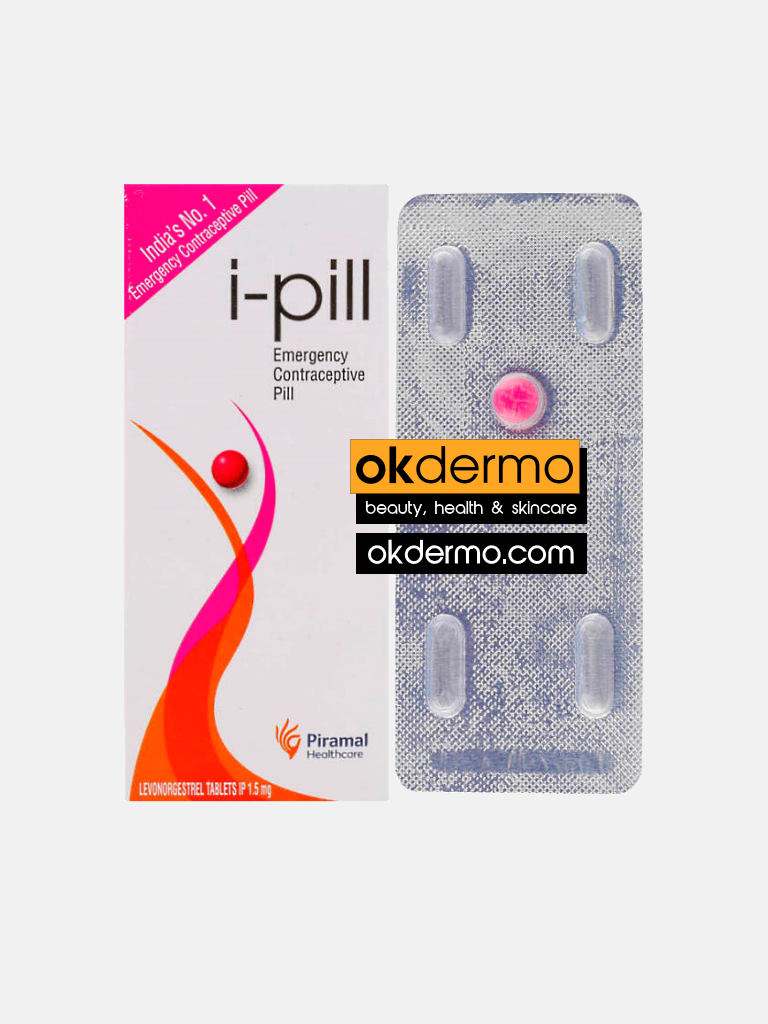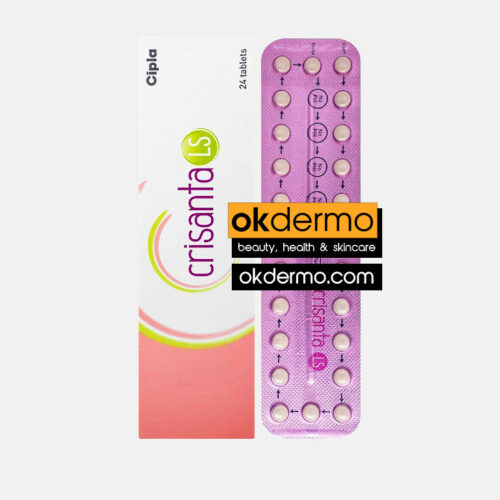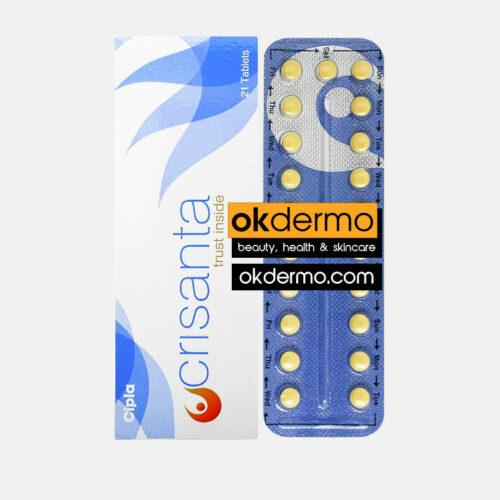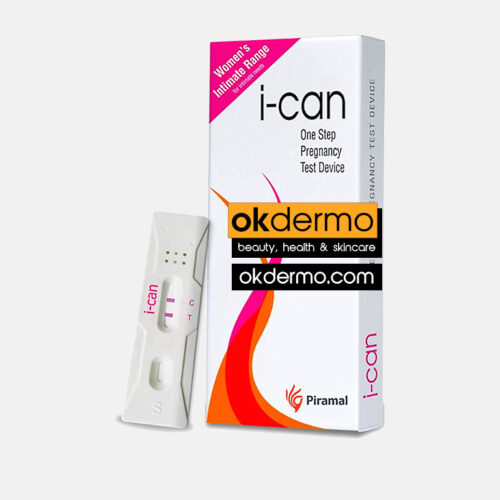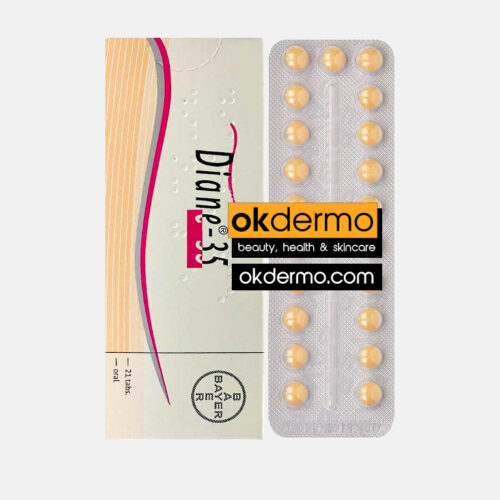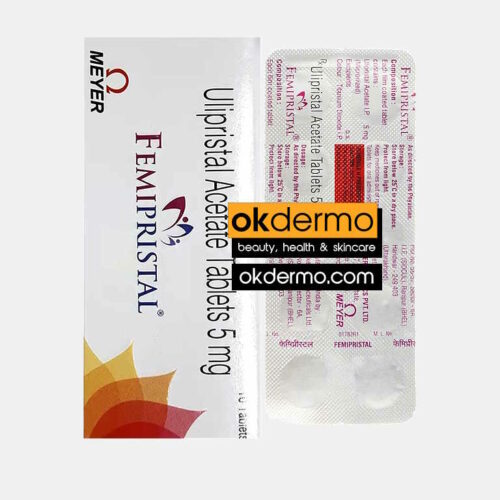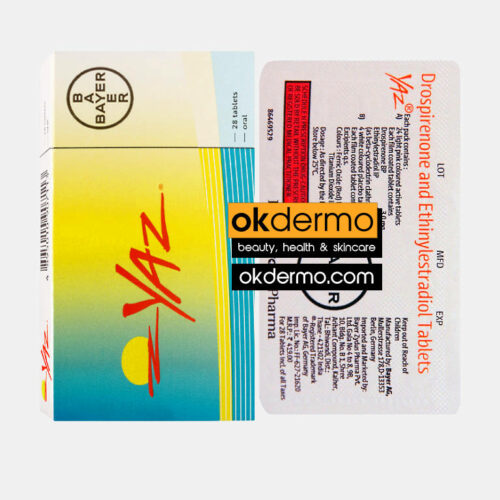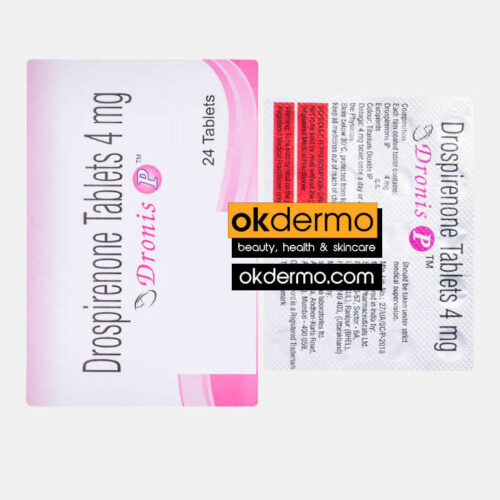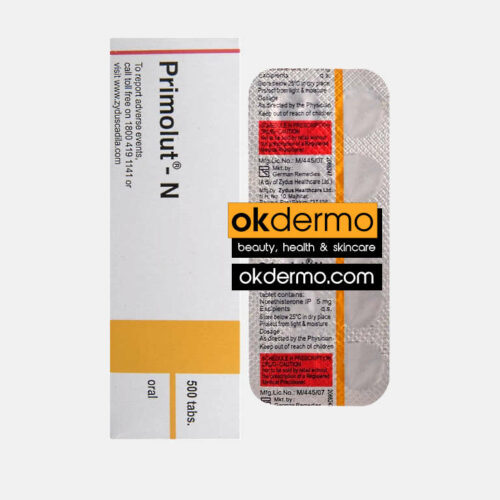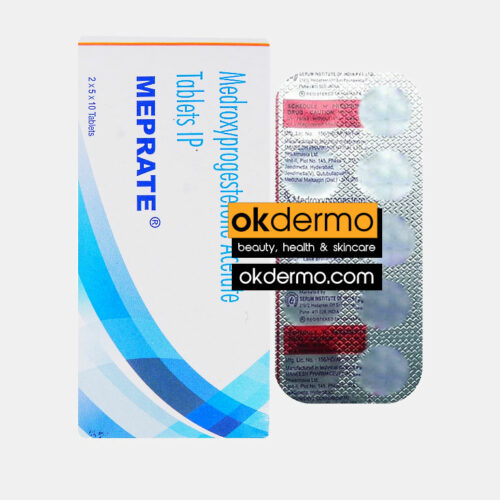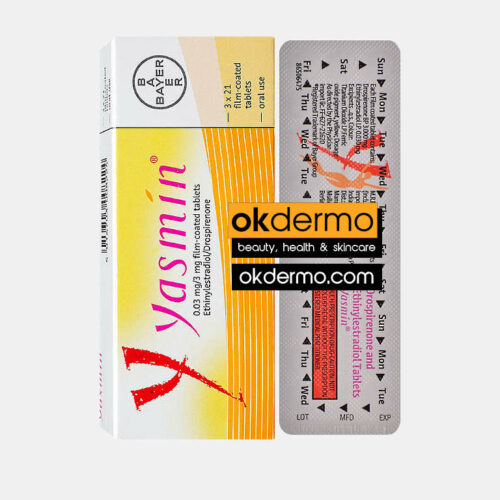Description
What is I-Pill® Emergency Contraceptive Pill?
It is used as an emergency contraceptive tablet to prevent unwanted pregnancy in case of unprotected sex or contraception failure. The emergency contraceptive pill should be taken within 24-72 hours of having unprotected sex. The pill should be taken orally. Also, the sooner you take the pill, the better it is because as time passes by, the pill becomes less effective. Most of these pills are advised to be taken within 72 hours.
This tablet contains levonorgestrel as an active ingredient. When the active compound gets into the bloodstream, it blocks the formation of hormones such as luteinizing hormone (LH) and follicle-stimulating hormone (FSH). These hormones are responsible for the development and release of eggs from the ovaries (ovulation). Hence, depending upon your reproductive cycle, the emergency pill works by delaying the process of ovulation. However, in case the ovary has already released the egg, the tablet works by disrupting the fertilization of the egg with the sperm. In case fertilization has already occurred, it prevents the pregnancy by hindering the implantation (attachment) process in the uterus.
However, what most women need to know is the fact that the morning-after pill is not a primary form of birth control and should only be used in the case of an emergency. Moreover, it should not be confused with pills used to induce abortion. It is usually safe if taken in a responsible manner but can lead to certain side effects such as nausea, fatigue, and stomach cramps.
The Levonorgestrel emergency contraceptive pill also called the “Morning After Pill” has revolutionized the management of unprotected intercourse, in that, it offers swift access, convenient dosing, high efficacy, and a tolerable side effect profile. This modality of emergency contraception is brought about by a high single dose (or a two-dose regimen) of the synthetic progestin Levonorgestrel. Its success is obvious from the widespread acceptance it has found in a huge number of young women and teenagers, especially since it is offered for girls above 17 years. Levonorgestrel emergency contraception is available under the brand names I-Pill, Plan B, Plan B One Step, Postinor 1, and Postinor 2. We also have in stock Depo Provera Shot which provides contraception for a long term of 12 weeks with just one injection.
What is Emergency Contraception?
Unplanned pregnancies often end up in disastrous consequences such as psychological turmoil, emotional exploitation, financial burden, quack remedies that can permanently incinerate the female genital apparatus, unsafe abortions, legal abortion with strain on the health budget, and the most hurtful of all – an unwanted child. Emergency contraception if successfully employed obviates and mitigates these unforeseen issues.
Emergency contraception involves the use of such methods of contraception that prevent a pregnancy from occurring after an act of often sudden unprotected intercourse or from an expected failure of some other contraceptive method. Not only is it a remedy for the unexpected coital act but also a backup for failed contraception.
Two effective methods are presently available to remedy this unfortunate situation. These include the Hormonal and the Mechanical (IUD – Intra-Uterine Device). Levonorgestrel emergency contraceptive pill used as per the ‘Ho Kwan’ regimen, has long since superseded the use of combined oral contraceptive pills vide the ‘Yuzpe’ regimen. The latter is associated with the use of estrogen, higher side effects, and failure rates. When compared to the IUD, the Levonorgestrel emergency contraceptive pill is readily available, accessible, and easy to use. It involves the intake of just one or at the most two pills. It has therefore rightfully earned the monikers “Postcoital Pill” or “Morning after Pill”.
Levonorgestrel is an emergency contraceptive that is used to prevent pregnancy after unprotected sex or after the failure of another birth control method. It works by preventing a woman’s egg from fully developing. It may also prevent the attachment of the woman’s egg to the wall of the uterus (womb).
No contraceptive method is 100 percent effective. Birth control methods such as having surgery to become sterile or not having sex are more effective. This medicine should not be used as a regular method of birth control. Discuss your options for birth control with your doctor. I-Pill® is available as an over-the-counter medicine for any woman of childbearing potential.
Facts about I-Pill® Levonorgestrel Tablet
- This tablet works as an emergency birth control pill that has a strong dose of hormones. So, do not use it on a regular basis and use it only for emergency purposes.
- As an I-pill is an emergency contraceptive pill, you should not mistake it for regular oral contraceptive pills or abortion pills.
- If you do not get your periods within three weeks after using this medicine, it is wise to do a pregnancy test to make sure you are not pregnant.
- Do not take this pill if you are allergic to it. Talk to your doctor about other effective contraceptive pills that you can take.
- If you vomit within three hours of taking this pill, then take another pill as soon as possible. This is because vomiting does not let the constituents of the pill get absorbed by the body which can render the pill ineffective.
- These pills are not 100% effective in the prevention of pregnancy. These pills do not work if pregnancy has already occurred.
- Emergency pills do not protect against the risk of sexually transmitted diseases like HIV. Condoms should always be used to prevent these diseases as they are safe and effective methods of contraception.
Method of taking the Morning After Pill
How is the Levonorgestrel emergency contraceptive pill used? Levonorgestrel emergency contraceptive pills are available in two versions. The first type is a single pill of Levonorgestrel 1.5mg and the second formulation consists of two Levonorgestrel tablets of 0.750 mg each. This dual marketing is in response to two styles of dosing of LNG for emergency contraception based on the ‘Ho Kwan’ trial usage.
Simply put, for effective emergency contraception, 1.5mg of Levonorgestrel needs to be taken on a single day, within 72 hrs of the unprotected coital act. This can be achieved by a single 1.5mg pill, or as some women prefer, in two equal 0.750mg divided doses 12 hours apart. The latter was the original way it was taken as per ‘Ho Kwan’.
The divided regimen affords intake of a smaller dose at a time and supposedly had lesser chances of inducing vomiting and pill failure. However, as per the ‘WHO-Hertzen’ trial, no statistically significant difference was found in efficacy or side effects in either regimen and it comes down to a matter of personal choice eventually.
Levonorgestrel Emergency Contraceptive Pill – Indications and Uses
The Levonorgestrel emergency contraceptive pill is useful and valid in the following situations:
- Single sudden acts of coital exposure are common in teenage girls, young women.
- Unplanned intercourse in steady or married couples that mate infrequently.
- When pregnancy is a strong possibility due to a failed contraceptive measure in and around mid-cycle such as with a ruptured condom, faulty diaphragm, expelled IUD, or a missed combined pill.
- In couples that practice coitus interruptus without any other form of protection.
- In cases of sexual abuse, rape, and incest.
Advantages Of The Morning After Pill (I-Pill)
Below are mentioned some of the advantages of the morning after pill (Levonorgestrel emergency contraceptive pill):
- I-Pill is devoid of estrogen, hence dominantly estrogenic reactions like vomiting and tummy turns are infrequent.
- The morning-after pill does not require a prescription and is readily available over the counter for any woman and teenager above 17yrs. Those below 17 need a valid doctor’s prescription.
- Levonorgestrel emergency contraception is easier to administer since it involves taking just one or at the most two pills, unlike four combined contraceptive pills at a time or the cumbersome insertion of an IUD which would need a clinic consult.
- Relatively free from side effects and acceptable tolerability.
- I-Pill is better than the combined contraceptive pill regimen of ‘Yuzpe’. The efficacy in preventing pregnancy is as high as 85% when used within 72 hours. Even higher rates are achieved when used earlier and closer to the unexpected coital act.
- Withdrawal bleeding occurs in most women at around the scheduled or expected time for menses in that cycle; in a few cases, it may occur within 5 days. Rarely menses may be delayed by about 7 days.
How does The Morning After Pill (I-Pill) work?
The precise mechanism of how the morning after pill acts on the female genito-hormonal setup to stop unwanted pregnancy is not yet elucidated. However, the fundamental postulates that apply to any synthetic contraceptive pill hold good. Levonorgestrel emergency contraceptive pill works at both levels ‘periconceptionally’ to prevent ovulation if not yet occurred – ‘Contraceptive Role’; or in case ovulation has already taken place, it prevents implantation of the recently fertilized egg (blastocyst/zygote/embryo) onto the womb lining (endometrium) referred to as its ‘Interceptive Role’.
In any case, it cannot disturb a successfully implanted early pregnancy, which needs at least 72 hours of undisturbed natural hormonal influences. Levonorgestrel emergency contraception exploits this 72-hour window from ovulation through fertilization to implantation to disturb the natural hormonal milieu and prevent a pregnancy from occurring. The high dose of Levonorgestrel floods the bloodstream to inhibit two vital brain-based natural hormones that act on the ovary namely FSH and LH. These are absolutely essential in high amounts or surges to bring about ovulation and preparation of the womb lining. Levonorgestrel drastically reduces their circulating quantity and effectively blocks their actions on the ovary and womb.
Since Levonorgestrel (I-Pill) works before a period is missed or before a pregnancy test is positive it cannot be classified as an ‘abortifacient’ and emergency contraception is therefore not abortion or miscarriage.
Side Effects of The Morning After Pill (I-Pill)
The possible side effects of the morning after pill (I-Pill) are usually insignificant and manageable. The commonly reported possible side effects of Levonorgestrel Emergency Contraception are:
- Nausea, Diarrhea, Bloating, Abdominal or Tummy cramps, and rarely Vomiting
- Fatigue, Headache, Dizziness, Breast tenderness
- Flu-like syndrome – malaise, body aches, joint pains, muscle cramps, nasal congestion
- Vaginal bleeding is more like spotting, much before the anticipated date of menses.
Rarely observed side effects of I-Pill (Morning After Pill) include:
- Ectopic pregnancy, bleeding into the ovary (hemorrhagic corpus luteum), vaginal yeast infection, delayed menses.
- Ear, nose, throat infections and tonsillitis
- Raised blood sugars and platelets
- Palpitations, weeping.
- Aggravated acne or pimples, skin rash
- Bleeds in the urine, urinary infections.
Precautions Prior To I-Pill (Morning After Pill) Use
Do not take the morning after pill (I-Pill) or have a medical consult in any of the following situations:
- More than 72 hours have elapsed since coitus
- Already pregnant
- Undiagnosed vaginal bleeding
- Allergic to Levonorgestrel
- Breast Cancer
- High blood pressure
- Stroke, Heart attack, Blood clots
- Diabetes with vessel damage
- Chronic or long-standing Liver disorder
- Expiry date on pack exceeded
- Taking any other medication especially anti-tuberculosis or anti-HIV or anti Epileptics
Warnings With Morning After Pill use
The following warnings should be kept in mind when using Morning After Pill:
- Morning After Pill does not confer protection against HIV.
- Chances of failure are higher when I-Pill is used late and closer to 72 hours after unprotected sex.
- Vomiting for up to 3 hours after taking the pill is considered a missed dose and a repeat under medical guidance is needed.
- Absence of the withdrawal bleed for more than 7 days after the expected date or beyond three weeks from the date of taking Levonorgestrel emergency contraception merits a medical consult to rule out pregnancy.
- Abstinence or barrier contraception in the very least must be implemented till the withdrawal menses occurs
- Repeated use of I-Pill (Levonorgestrel emergency contraception) in one cycle or regular use in more than one consecutive cycle disturbs the rhythm of natural cycles and protection against pregnancy may not be assured.
- Nursing Women: LNG is transferred to the infant through breast milk but it is not found to reduce or affect the quantity or quality of breast milk or to have any adverse effects on the infant.
Interactions – Concomitant Use Of Other Medications With Morning After Pill (Levonorgestrel Emergency Contraception)
Drug-Drug Interactions: The following medications reduce the efficacy of morning-after pill (Levonorgestrel Emergency Contraception) and extra vigilance must be maintained for the occurrence of pregnancy at the end of the cycle:
These drugs are from various groups as below:
Anticonvulsants: Phenytoin, Carbamazepin, Phenobarbitone
Anti Tuberculosis: Rifampin, Rifabutin
Antibiotics: Ampicillin, Penicillin, Cotrimoxazole, Tetracyclines, Clarithromycin
Others: Acetaminophen
Herbal preparations: St. John’s Wort.
Drug – Food Interactions: No known co-relation with the taking of the LNG pill and the time or quality of food intake had been well studied or documented and it is presumed that drug efficacy is intact independent of dosing relative to meal timing.
Buy Morning After Pill (I-Pill Cipla) Online For Cheap
You can buy the morning-after pill (Levonorgestrel emergency contraception) online from okdermo.com. Levonorgestrel Emergency Contraceptive Pills (I-Pill manufactured by Cipla)are supplied in a box containing a single pill of 1.5 mg (1500 micrograms).

